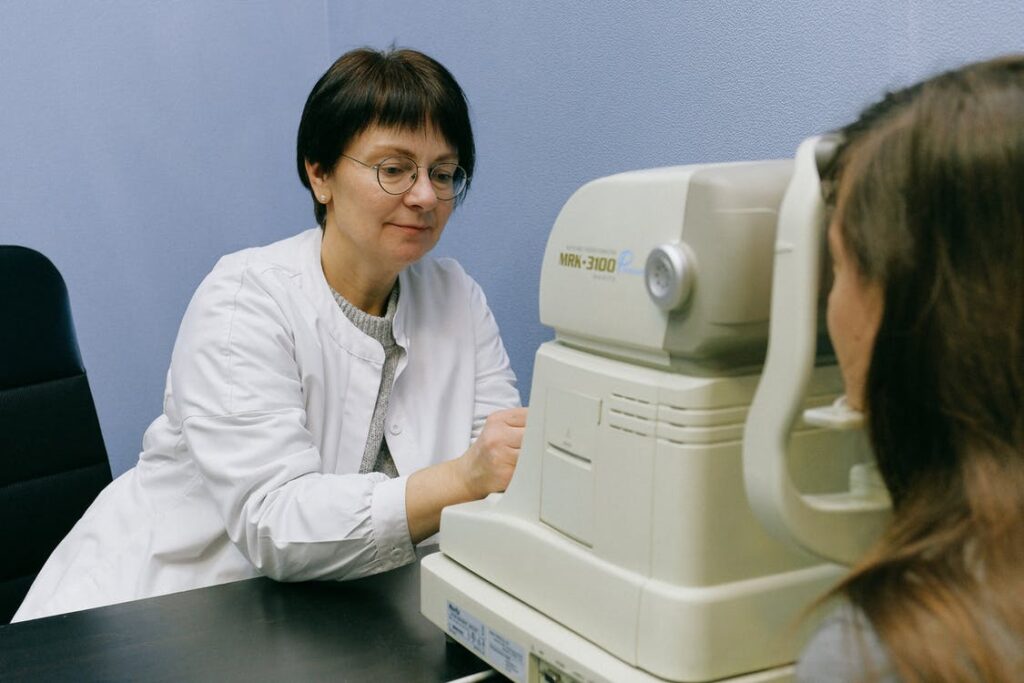5 Ways Online Healthcare Degrees Are Impacting The Healthcare System

Times are changing, and so is the healthcare industry. These changes have helped make professional practices more effective, them being either in the ER or nursing homes for the elderly. However, another unexpected change that is quickly revolutionizing the field is a drastic increase in online healthcare degree programs covering vast areas of studies from nursing to healthcare administration.
Online degrees have brought forward many talented and qualified individuals in every healthcare sector. There has been an 80 percent increase in the number of students enrolled in a healthcare-related degree or certification online. While one may question the merits of online degrees, the truth is that they’re benefiting the industry in more than one way. Here are a few:
1. Convenience In Acquiring Certification

The most significant benefit of studying online is that a student can learn from anywhere at any time. This factor has given rise to students who are taking different certification classes with a renewed interest. Many universities offer online courses on subjects such as medical assistance, billing, coding, and phlebotomy. Apart from that, there are many certification programs for nurse practitioners and physicians who wish to advance their skills and remain updated on the latest healthcare practices. Online certification classes let them work and study simultaneously. Advanced certifications help these professionals in paving the path to career progression in their field. This convenience has given rise to qualified individuals seeking out work in hospitals, clinics, and medical centers, thus dramatically increasing the workforce.
2. Wider Choice Of Degrees, And Specializations

Online learning also offers a broader choice of topics and subjects to choose from. The diversity of options allows students to fill in odd gaps in the industry, making the process of providing quality healthcare to patients more efficient. Students can choose to study in specialized areas of nursing such as senior care or drug rehab, or even opt for courses designed to enhance leadership skills in managerial and administrative roles. Either way, the vigor to learn more and complete their programs quickly has brought forward many bright minds in the industry.
3. More Qualified Healthcare Professionals Per City/State

Entry in on-campus medical degrees is quite stringent and a barrier-to-entry for many aspiring healthcare practitioners. However, this is not the case with online healthcare degrees. Not only is the diversity in programs to choose from broad, but often these degrees do not have strict entry requirements. Enrolling for a healthcare degree online is relatively easy, which has led to an increase in the number of people studying to serve the industry in one way or another. Ultimately, the local population benefits from this, as the quality of service increases in the long run.
4. Faster Learning Option

Online learning has brought more convenience than ever. Now, students don’t have to spend years pursuing an online degree according to the university schedules. Instead, they can take on as many or as few courses as they can. As soon as they reach their necessary credit requirement, they can get their degree or certification. In many cases, students who want to work in the healthcare sector immediately after high school are taking certification courses. They can finish these courses in a matter of months, get their certificates, and start their career immediately. Even if they want to pursue higher education, they can work and gain experience alongside their degree.
Such programs benefit the community greatly. Hospitals and clinics have access to more qualified individuals to hire for every job. This helps to recruit people in other functions such as administration and management at healthcare facilities. There are no more staff gaps, and providing quality service becomes a seamless process.
5. Increase In Public Awareness

The general population usually doesn’t have much information about diseases and conditions affecting their health and lifestyle. They may be suffering from one and may not even be aware of it. There are online courses present that focus on such conditions, including diabetes, obesity, cardiovascular problems, or respiratory problems. These courses train the students to educate the local population about these conditions and adopt a healthy lifestyle.
While there are many positive impacts of online education on the healthcare sector, there are also a few barriers to this practice.
Barriers To Online Healthcare Education

- Skill deficit: A gap in technical skills is seen that may cause problems. It may be due to their inability to handle or learn computing technology that causes barriers to student engagement.
Solution: Educators should train for methods to communicate with the students effectively.
- Time barrier: medical students have to maintain a work and personal life balance. Put certification and degree programs in the mix, and it can get somewhat overwhelming for them.
Solution: Usage of practical digital tools can accelerate the learning procedure. These tools can save the students a lot of time spent learning different concepts from scratch. The introduction of a formal mechanism that acknowledges the students’ efforts and promotes learning efficiently can help overcome this barrier.
- Clinical skill training: Students need to learn specific clinical skills to understand their education’s practical application. Online learning can be a barrier in this regard.
Solution: Different methods that include online simulation, VR, and AR can solve this problem effectively. These methods allow the students to practice their clinical skills without coming into contact with a real patient. It lowers the chances of human error.
Conclusion
The healthcare industry is ever-changing. The changes let the industry adapt to technological advances and update their healthcare methods. Online medical courses have a positive impact on the healthcare industry. The barriers present are easily solvable through the usage of technology and intellect. Despite the obstacles, the positive effects of overweight the barriers by a significant margin.



